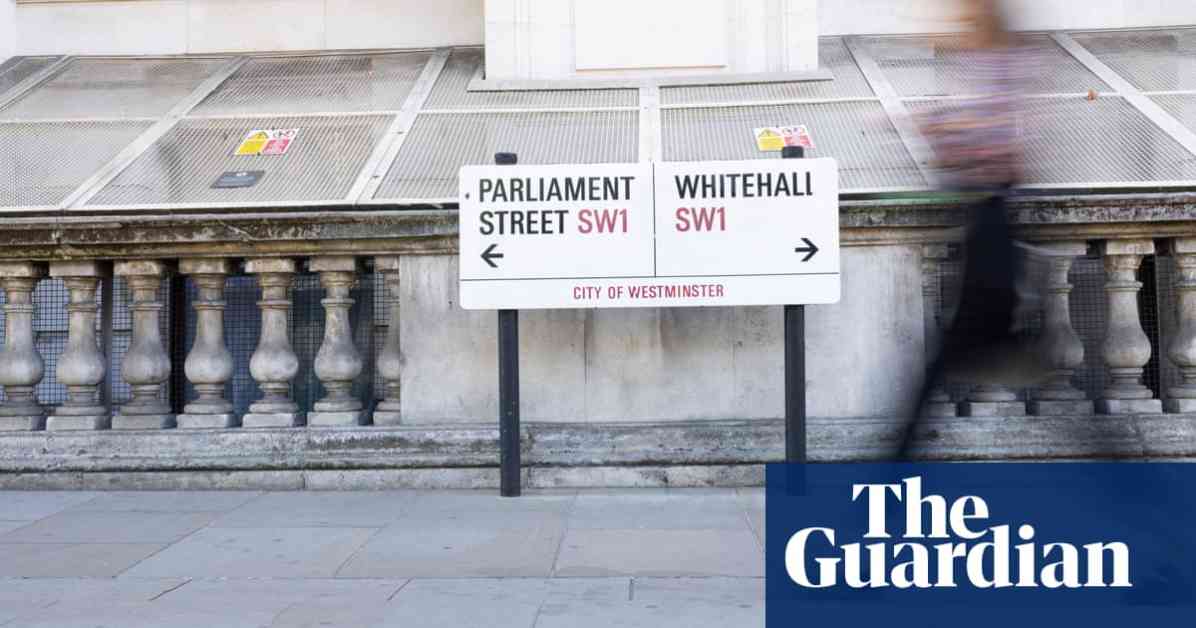Ministers Set to Slash Over 10,000 Civil Service Jobs
In a groundbreaking move to streamline government operations, ministers are gearing up to cut more than 10,000 civil service jobs amid mounting pressure to rein in spending and boost efficiency, as reported by the Guardian.
Why the Cuts?
The decision to downsize the civil service comes in the wake of concerns that the bureaucracy has ballooned to unmanageable proportions, fueled by the challenges posed by Brexit and the Covid-19 pandemic. With the Chancellor Rachel Reeves mandating departments to slash 5% off their budgets as part of a comprehensive spending review, insiders predict that job cuts are all but inevitable.
The Inside Scoop
A source within the Cabinet Office revealed that tough decisions lie ahead for departments as they grapple with meeting budgetary constraints set by the Treasury. While Cabinet Office Minister, Pat McFadden, refrained from divulging specifics about job cuts, he emphasized the need for a more agile and efficient civil service, likening it to a startup.
The Numbers Game
Currently, there are 513,000 full-time civil servants in central government, a substantial increase from the recent low of 380,000 in 2016. The Labour government, following a shift in policy, is now eyeing over 10,000 job cuts, marking a significant departure from the Conservatives’ earlier target of slashing 66,000 civil service roles.
Restructuring Ahead
The Cabinet Office, singled out as one of the bloated departments, may face restructuring efforts, with the possibility of staff redeployment or division. Additionally, ongoing hiring freezes and voluntary redundancies could further contribute to staff reductions across Whitehall. Efficiency in Focus
As the government gears up for the first-ever strategic workforce plan for the civil service, the emphasis remains on enhancing efficiency, productivity, and technological integration to reduce dependency on human resources. Cat Little, the permanent secretary of the Cabinet Office, stressed the importance of streamlining operations to better align with modern government demands. Repercussions and Responses
The looming specter of job losses has raised concerns about morale within Whitehall, particularly in light of recent criticisms by Keir Starmer regarding a culture of complacency. Dave Penman, general secretary of the FDA union, called out the Prime Minister for his disparaging remarks about civil servants, urging a reevaluation of the government’s approach.
As the government gears up for the first-ever strategic workforce plan for the civil service, the emphasis remains on enhancing efficiency, productivity, and technological integration to reduce dependency on human resources. Cat Little, the permanent secretary of the Cabinet Office, stressed the importance of streamlining operations to better align with modern government demands.
Repercussions and Responses
The looming specter of job losses has raised concerns about morale within Whitehall, particularly in light of recent criticisms by Keir Starmer regarding a culture of complacency. Dave Penman, general secretary of the FDA union, called out the Prime Minister for his disparaging remarks about civil servants, urging a reevaluation of the government’s approach.
Moving Forward
Despite the challenges posed by impending job cuts, the government remains steadfast in its commitment to revamping the civil service, with a focus on enhancing skills and leveraging new technologies to drive efficiency and effectiveness.
In a time of unprecedented change and uncertainty, the civil service braces for a new chapter marked by transformation and adaptation to meet the evolving needs of governance in the 21st century.












